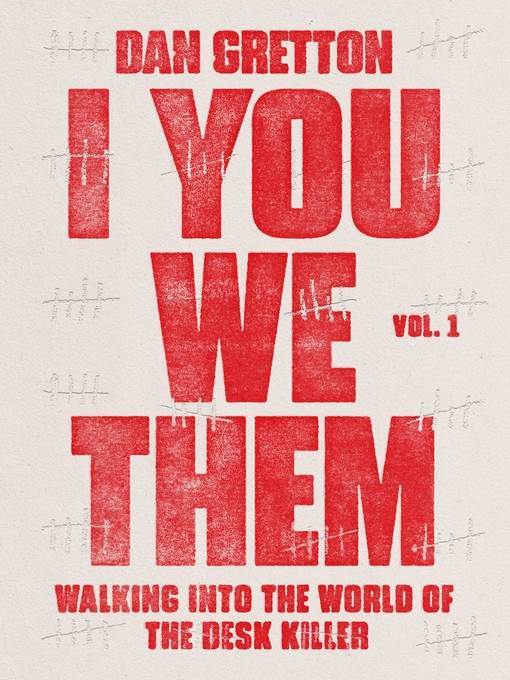
I You We Them--Volume 1
Walking into the World of the Desk Killer
کتاب های مرتبط
- اطلاعات
- نقد و بررسی
- دیدگاه کاربران
نقد و بررسی

March 1, 2020
A massively detailed account of the good bureaucrats who follow orders and thereby kill millions. British arts and political activist Gretton has long puzzled over the worse angels of our nature. In this long, dense narrative, the author begins by recounting such things as a communications manager's protest that she and her colleagues have nothing to do with the evil their corporation has undeniably committed; a flash of conversation with an interviewer of Nazi architect Albert Speer who heard him confess, "I loved machines more than people'; and news of the death of Ken Saro-Wiwa, the Nigerian activist who tried to stop oil conglomerates from devastating his homeland. These all have in common a struggle between violator and victim largely enacted by "desk murderers," a term that traces loosely to Hannah Arendt and her book Eichmann in Jerusalem, with its coinage of the more famous phrase "the banality of evil." The evil these people commit is banal indeed, but the crimes are extraordinary. Over the course of hundreds of pages, Gretton tells stories of Nazi functionaries such as Eichmann himself, presiding over "a bafflingly detailed discussion over exactly how Jewishness is to be defined." That definition, of course, would condemn millions to death, a process begun by the legal maneuverings of another team of Nazi desk murderers to deprive German and then all subject Jews of their citizenship--and stateless people are susceptible to awful state crimes, as are the anonymous inhabitants of faraway lands. That eventually brings Gretton to the torturers of the George W. Bush administration and, beyond, drone pilots and others who "can stroke their child's sleeping face in the night, and in the morning send the email that kills people they have never met." The text, which is one of a planned two volumes, is too long by half and wildly diffuse, with digressions into philosophy, the psychology of storytelling, and the like. However, the subject is tremendously important in a time grown ever darker--and ever more reminiscent of the darkest days in modern world history. For philosophically inclined--and patient--readers with a bent for resisting institutional evil.
COPYRIGHT(2020) Kirkus Reviews, ALL RIGHTS RESERVED.

April 1, 2020
I You We Them is a creative and personal exploration of what Gretton calls "desk killers," the government and corporate bureaucrats whose decisions and actions are behind genocide and other mass atrocities. Gretton's focus is worldwide. He includes lengthy sections on the victims and perpetrators of the Holocaust, with briefer histories of the massacre of the Herero people in Namibia in the early 20th century, and the execution of Nigerian activist Ken Saro-Wiwa in 1995. The death of Saro-Wiwa is part of an examination of corporate responsibility for environmental damage and massive disruption of people in oil-producing regions, often with tragic outcomes. Gretton, an activist and educator, takes a deeply personal approach to this book. This is in clear contrast to the ways that the mass murderers he writes about use abstract language to dehumanize their victims. Gretton's autobiographical asides are often lengthy digressions, but they have the effect of making him an empathetic guide through difficult histories. VERDICT Readers looking for a traditional history will not find it here. This account is recommended for readers who have the patience to accompany the author on his journey of discovery to understand the motivations behind people who commit mass atrocities. [See Prepub Alert, 9/9/19.]--Nicholas Graham, Univ. of North Carolina, Chapel Hill
Copyright 2020 Library Journal, LLC Used with permission.

October 1, 2019
An activist who has been involved with human rights and peace issues since the antinuclear movement in the 1980s, Gretton spent the past two decades interviewing both survivors and perpetrators of human rights abuses and immersing himself in numerous archives and thousands of pages of testimony. This work examines the "desk killers" who ordered some of the 20th century's worst atrocities and offers personal reflections on love, loss, and moral conundrum.
Copyright 2019 Library Journal, LLC Used with permission.

























دیدگاه کاربران